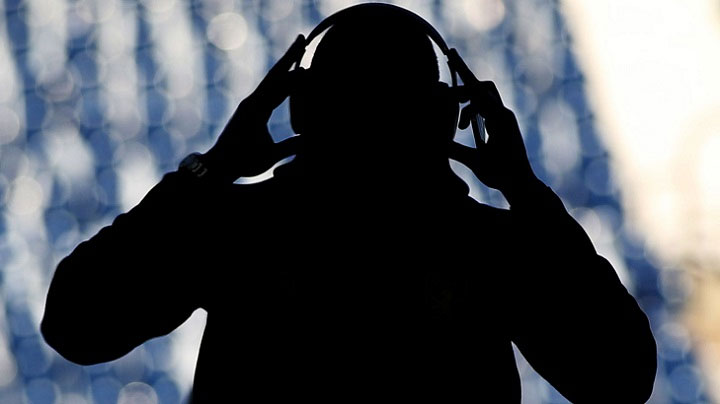Listening to music before anesthesia surgery can help you calm down
A recent recent study found that patients who listened to music before anesthesia often had very low anxiety levels.
According to Gizmodo , doctors use music as a relaxing "medicine" for patients who enter before, during and after treatments, including surgery, and the results are promising. The music positively affects the patient may somewhat relieve the temporary pain of the nervous system , while the doctors will inject local anesthetic into the nervous area to reduce physical pain. And before that, by understanding the patients' anxiety before performing the surgery, doctors often prescribe tranquilizers for patients to use.

Music positively affects patients who may somewhat relieve temporary nervous system pain.
However, there are many reasons why both doctors and patients do not want to use tranquilizers except in force majeure. This is because these drugs can not only cause side effects such as breathing difficulties but also adversely affect the nervous system as easily irritable and become irritable in a confusing way. Veena Graff, an anesthesiologist and research specialist at the University of Pennsylvania School of Medicine, said they have never conducted a direct comparison of the use of music with the drug treatment mentioned above.
The study of the miraculous power of music, published in the Regional Anesthesia & Pain Medicine page, selected 160 relatively healthy patients to test. Half were randomly assigned to listen to music through noise-canceling headphones, while the other half used tranquilizers.
According to the report, they found that both groups felt equally worried (measured by a short test) from before and after the test. Doctors also report that there is no difference in how patients feel. Even so, people who use sedative drugs say they are a little more satisfied with the experimental process. While the music group said they and the doctors had difficulty communicating with each other because of the obstruction of the headphones.
However, research seems to show that the use of music does not present any major risks to the nervous system, better than the use of tranquilizers. And researchers also note that music therapy also helps some people before and after surgery feel more comfortable and convenient to recover.
"Anyone can try using music instead of using tranquilizers to become calmer," Veena Graff replied to Gizmodo. And for those who do not like the feeling of sedation, they now have alternative therapies. As well as reducing the amount of tranquilizers before and after surgery can help patients recover faster.

Using music has no major risks to the nervous system.
Even the effect that music can bring can be increased. Accordingly, the team used a Marconi Union band song written with audio therapists and released in 2011, called "Weightless" . The 8-minute song is specially reserved for patients, helping them relax and calm down. But because today everyone has a playlist of their own, listening to a favorite song can help patients with better stress relief.
"Right now, we live in a world where music is almost everywhere. Many people now own their own smartphones and multimedia devices that contain music in them. " Graff said.
The best way that we can take advantage of and improve the musical benefits of medical purposes, according to Graff, is for hospitals to begin providing additional music options, in addition to the available treatments. . And typically, a few medical centers in the United States have provided headphones for anyone who wants to relax before performing surgery instead of using sedatives.
Graff added: "Currently, I know there are a lot of organizations that are also trying to bring music into their daily activities, but there is still a lot to do if it is to be true. I hope Hopefully someday, music will be an official choice given by hospitals to all patients ".
- Video: Mechanism of action of three types of anesthesia in surgery
- Listening to music during surgery helps protect brain cells
- The startling effect of the habit of listening to music
- Science 'decoding' the miraculous effects of listening to classical music
- Listening to sad music helps people feel happier?
- 7 reasons you should listen to music while exercising
- Music helps children be more intelligent and alert
- Listening to music too loud can drive women crazy
- Look for the reason why some people get goose bumps when listening to music, others don't
- Non-verbal music can cause car accidents
- Listening to music is too big risk of deafness
- A brain tumor without anesthesia
 13 causes of non-itchy rash
13 causes of non-itchy rash How the mouse with human ears changed the world?
How the mouse with human ears changed the world? The truth about 'fried rice syndrome!
The truth about 'fried rice syndrome! What is dental implant?
What is dental implant?